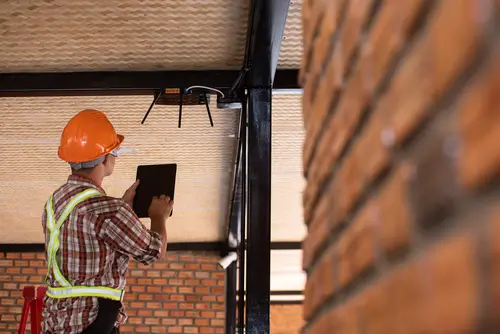When it comes to your internet connections, there is no doubt that you need a specialist to get you up and running as quickly and effectively as possible. These days, particularly with the global COVID pandemic affecting what used to be many normal physical meetings and gatherings, so much more of our communication has been carried out online. Webinars have become normal procedure for many businesses and educational institutions, and the need to have communication lines which are clear and able to be heard by everyone in the meeting is a vital component of these meetings. I have recently attended a few online meetings in which the communications have, at some point during the meeting, broken down into an unintelligible garble. If the meetings have to be minuted for future reference, this poses a major problem to all concerned, which is one of the reasons for ensuring that your internet service provider (ISP) is providing you with the fastest, strongest and most reliable signal possible.

What, in simple terms, is the internet about?
The internet is, basically explained, the movement of huge masses of data (for instance, streaming movies and music, playing online games, etc.) moving at high speeds between connected devices via radio waves. These radio waves are directed to routers, which then transmit them onward either through pulses of electricity via copper wiring, or alternatively, through beams of laser light which use light impulses to transmit data along fibre optic cables rather than electrical impulses transmitted on the more traditional copper cables. The light carrying the data travels along thin glass fibre tubes at the speed of light. The routers themselves are connected to wires which are owned by various internet service providers. Over short distances, these radio waves can be beamed through the air through Wi-Fi. Wi-Fi, of course, is the radio signal which a wireless router sends to a nearby device, which in turn translates the signal into data that you can see and use. This wireless technology is used to connect computers, tablets, smartphones, etc. to the internet.
How does the internet carry signals across the globe?
Over longer distances, internet data is carried underground or undersea through cables. Although there are an increasing number of satellites orbiting the earth, they are far from ideal in terms of carrying the huge amounts of data being transmitted around the globe at the speeds which are required, so internet data is still limited to an extent by a global network of wires which house the fibre-optic cables which carry the data in both directions – to and from. Where these wires need to cross large bodies of water, such as the oceans, they are laid at below the surface a depth of around 8 000 metres, and amplifiers are placed every 50 km or so to boost the signal strength. The cables are not deeply buried, but are laid in shallow trenches designed for them. Movements within the ocean, such as oceanic earthquakes, cables being caught up in a trailing anchor, or bitten by sharks (which is not common but has actually happened) can disrupt the internet serviced by those cables, but these disruptions are usually repaired quickly.
Do all ISPs use their own fibre cables?
There are so many different internet service providers (ISPs) available these days, some of whom make use of shared high-speed fibre broadband cables which are laid by specific service providers. From a practical point of view, laying fibre cables in the same area for every ISP would be an uneconomic route to follow, particularly as the cables can carry so much data at tremendously high speeds and the population in one local any area is simply too low to warrant this. Fibre-optic cables are more efficient at transferring data than standard copper cables and are stronger, which makes them more resistant to electrical interference and cold weather or very high temperatures, all of which adversely affect a broadband connection. Fibre-optic cables are also capable of streaming one thousand times more data than copper lines.
A very short lesson in South African internet history …
It is interesting to note that (according to a slightly outdated Wikipedia page), over 60% of internet traffic generated on the African continent originates from South Africa. Rhodes University was granted the first South African IP address back in 1988, followed in 1991 by the first IP connection being made between the computing centre at the University and the home of an individual named Randy Bush in Portland, USA, whilst commercial internet access for business and private use began in June 1992 with the registration of the first .co.za sub-domain. Internet connection speeds and availability have increased dramatically since those early days days.
Chose the provider and package which suits your needs
So much of our personal and business lives depend on the internet, so it makes sense to ensure that you are getting the best connection speeds possible when you install internet connectivity. If you do your homework well, and research all the internet service providers available in your area, you will ensure that you will be obtaining the best options for yourself, your family and your business. After all, if your business depends on being visible to the widest possible audience, surely it makes sense to have a stable and reliable internet presence. In family units, each person will need the internet for different purposes – either to carry out internet searches, watch movies, play online games or simply to keep in touch with friends and family, which means that there will be different demands placed on the internet within the home.
Where do we go from here?
The internet is amazing, and ISPs are becoming increasingly efficient in providing fibre connectivity to a steadily growing audience. When one considers how far the internet has come in the last twenty years, it is almost impossible to forecast what will be available to us in the next two decades, but the future sure looks exciting!
